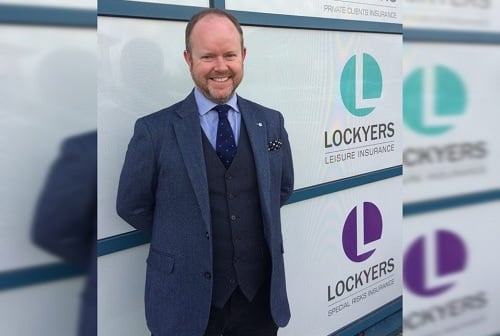

Following a roof collapse disaster at the Pontin Sands caravan park, which injured 18 people and has left one woman in hospital in a serious condition, insurance for holiday parks has been thrown into the spotlight.
The incident at the caravan park, which is located at Burnham-on-Sea in Somerset, occurred when the roof of an entertainment hall collapsed as holidaymakers were waiting to play bingo.
It has brought to light the many types of insurance that caravan and holiday park owners need to have, and may even spark owners to reassess their own insurance needs.
Martin Hall (pictured), head of leisure – south for Lockyers, said that there are three typical types of cover that caravan park owners take out.
“You’ve got the main heads of cover that any caravan park owner is looking for, which is public liability, property damage, business interruption,” he said.
Of those three, the most obvious form of cover that is taken out is public liability insurance, which is the element that would now play a large part at Pontin Sands.
“Whenever you’ve got members of the public coming on to your site, for anyone with a holiday park their main focus from a service perspective is to make sure that everyone is enjoying themselves, that they have a good time, and that they are of course safe and well looked after,” Hall said.
“So, I think that public liability is of course the main head of cover. But then you go into the property side of things. Some parks will have lodges or caravans that will be owned by the actual park themselves, but occasionally clients are going to have their own caravans. So, then you’ve got the issues around who insures, and whether you need what’s known as contingent liability insurance in there should anything go wrong with that client’s insurance and yours has to step in in some way.
“Should a major insured event prevent a caravan park or campsite from operating as usual, they may lose income. Business interruption cover is designed to help cover the loss of income, while they get back on their feet or provide them with a sum of money to keep them working for a period.”
If a park starts to have more and more attractions for customers, that makes the risks bigger and bigger.
“You start off with those main risks, employer’s liability, the property damage,” Hall explained. “Then some of these parks they’ll have entertainment venues, they could have a clubhouse of some sort that is serving alcohol and serving food.
“And, of course, you’ve got those additional risks to be concerned with and look at. Some of them go further and they have swimming pools on site and some of them actually have fairground rides on site. It then starts to become quite a tricky risk to cover.”
According to Hall, this is why specialist brokers are essentially the best
“You need to find a broker that can actually demonstrate the understanding of the risks that you as an owner have, that effectively can speak your language and know where you’re coming from,” he said.
“Because if you find a broker that does have that knowledge, they are inevitably going to know the right insurers to speak to because they will understand the appetite of the market.”
Hall’s advice is to start with brokers who are aligned with associations, as they are most likely to be experts in their field.
